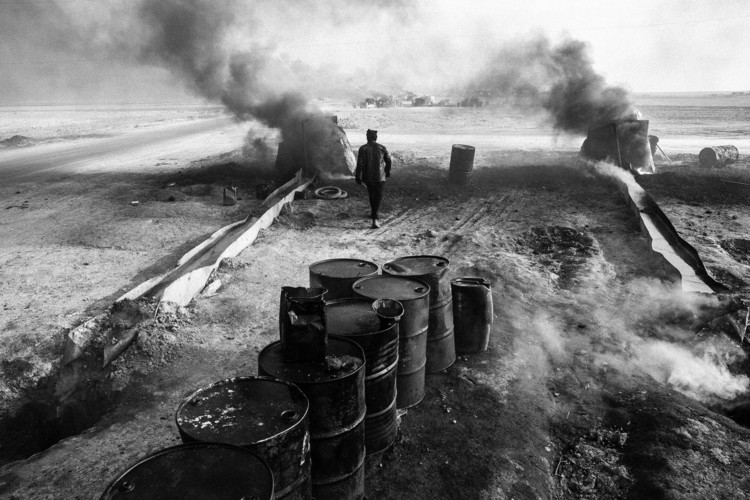This article has been republished with permission from our partner, Stratfor. The original version was first published in Stratfor’s WORLDVIEW and can be found here.
The Big Picture
In response to the latest round of escalation between Washington and Iran, in which protesters in Iraq breached the compound perimeter of the U.S. Embassy in Baghdad earlier this week — likely at the behest of Iranian Revolutionary Guard Corps Quds Force Cmdr. Qassem Soleimani — the United States has taken the opportunity to eliminate the Iranian military leader and other key architects of Tehran’s strategy in Iraq. But the question is, at what cost? Iran will retaliate in a significant fashion, increasing the risk of further escalation that could lead to a direct military confrontation between the two countries.
It’s the spark to ignite a major conflagration: Late on Jan. 2, the Pentagon said it launched an overnight strike in Baghdad killing several officials linked with Iran, including Qassem Soleimani, the powerful commander of the Islamic Revolutionary Guard Corps’ Quds Force. In addition to Soleimani, the head of the Iraqi Kataib Hezbollah militia, Abu Mahdi al-Muhandis, and the deputy head of Hezbollah in Lebanon, Naim Qassem were reportedly killed — although the latter’s death has yet to be confirmed. The Pentagon explicitly noted that among other reasons, the United States conducted the strike in retaliation for the attempt by supporters of Kataib Hezbollah to overrun the U.S. Embassy in Baghdad’s Green Zone on Dec. 31, but the decision to target one of Iran’s most important military figures is sure to raise tensions between Iran and the United States in the Middle East to new heights.
Soleimani’s death, which had followed a stark warning by U.S. Secretary of Defense Mark Esper that the United States was willing to preemptively strike Iranian-backed militias in Iraq to protect U.S. forces, will reverberate throughout the Middle East. As the head of the Quds Force, Soleimani was, more or less, the peer of generals leading the U.S. military’s actions in Afghanistan or Iraq. Naturally, his killing opens the way for a significant escalation, as Iran could well target high-ranking U.S. military personnel in the Middle East in response. Ultimately, Iran will absolutely seek to retaliate against the United States — the only question is at what level, what scale and when.
Here’s how Soleimani’s death might affect a number of areas around the Middle East — and the wider world:
Iraq
The risk that Iraqi militias backed by Iran would attack U.S. and Western forces, assets and, potentially, commercial interests was already high, but it’s just increased precipitously. Although Iranian-backed militias led by leaders like al-Muhandis were not popular among many Iraqis, the U.S. move to stoke a conflict with Iran on Iraqi soil will inject serious diplomatic tension into Baghdad’s relationship with Washington and fuel nascent efforts in the Iraqi parliament to reevaluate Iraq’s security cooperation with the United States. It will also complicate the Iraqi security force’s efforts to continue to work closely with Washington against the Islamic State.
Israel
Israel reportedly had come close to assassinating Soleimani a handful of times in recent years. And based on the missile threat that it perceives from the Quds Force and the Iraqi militias led by al-Muhandis and others, Israel will no doubt support this decision by Washington. But potential Hezbollah retaliation against U.S. interests in Lebanon could also turn into attacks on Israel, given the widespread perception in Lebanon — and throughout the region — that U.S. and Israeli interests against Iran and its allies are one and the same. In the worst-case scenario, that could touch off a separate fight between Israel and Iran.
Lebanon
Iran’s strong presence in Lebanon through Hezbollah makes the possibility of retaliation against U.S. targets there a distinct possibility. Hezbollah exercises influence in large swaths of Lebanon, including parts of Beirut, and has the capability to launch attacks against U.S. targets in the country. That risk will be even more pronounced if the death of Qassem, Hezbollah’s second in command, is confirmed.
Saudi Arabia and Gulf Oil Producers
It has been nearly four months since Iran attacked the Abqaiq and Khurais oil-processing facilities, taking half of Saudi Arabia’s oil production down. If the United States and Iran continue their escalation with direct strikes on one another, Iran could certainly retaliate against countries like Saudi Arabia, one of the closest U.S. allies in the region, and their economic interests. Each of the Gulf Cooperation Council states — particularly Bahrain and Qatar — hosts a significant U.S. military presence that Iran could target.
Persian Gulf
In addition to direct attacks on GCC member states, Iran could launch more attacks against the U.S. naval presence in the Persian Gulf. For most of U.S. President Donald Trump’s term in office, Iran has hesitated to use its naval assets to harass U.S. ships in the Persian Gulf, Strait of Hormuz and Gulf of Oman despite its aggressive strategy to counter U.S. sanctions pressure. That, however, could change: As it is, the USS Abraham Lincoln carrier strike group reported last month that Iranian naval ships had harassed it as it was leaving its deployment in the Gulf of Oman and Arabian Sea.
Syria
Soleimani’s death is a blow, but likely not a crippling one, to Iran’s ability to conduct its extensive operations in Syria. The United States does not have a significant presence in Syria compared to what it has in Iraq and the Persian Gulf, but the remaining U.S. forces in Syria are near Iranian-allied militia forces, meaning they could become a target.
Afghanistan
Iran could decide to strike the United States in Afghanistan, given the target-rich environment of U.S. soldiers and military assets in the country, as well as Iran’s history of support for the Taliban. Iran is better positioned to strike elsewhere — since it does not directly control or direct the Taliban as it does other proxy forces — but the possibility of retaliation in the war-torn country cannot be ruled out.
Yemen
Iran could push the Houthi rebels in Yemen to launch retaliatory attacks against U.S. allies as well, even though Iran does not directly control that group, either. The Houthis maintain a robust arsenal of drones as well as ballistic and cruise missiles, which they have used to carry out attacks in Yemen, Saudi Arabia and surrounding waters such as the Bab el-Mandeb strait. Potential targets include, but are not limited to, airports, critical infrastructure, energy infrastructure, military targets and vessels transiting the Red Sea.
Beyond the Middle East
The threat of retaliation is not limited to the Middle East, given Iran’s history of conducting attacks against targets ranging from Latin America to Eastern Europe and South Asia, among others. Iran has also been linked to numerous plots in Western countries, including in Belgium, Denmark, France, the United States and the United Kingdom in recent years.
 As the world’s leading geopolitical intelligence platform, Stratfor brings global events into valuable perspective, empowering businesses, governments and individuals to more confidently navigate their way through an increasingly complex international environment. Stratfor is an official partner of the Affiliate Network.
As the world’s leading geopolitical intelligence platform, Stratfor brings global events into valuable perspective, empowering businesses, governments and individuals to more confidently navigate their way through an increasingly complex international environment. Stratfor is an official partner of the Affiliate Network.






 eason we keep hearing tales of the group’s fabulous riches. Since
eason we keep hearing tales of the group’s fabulous riches. Since